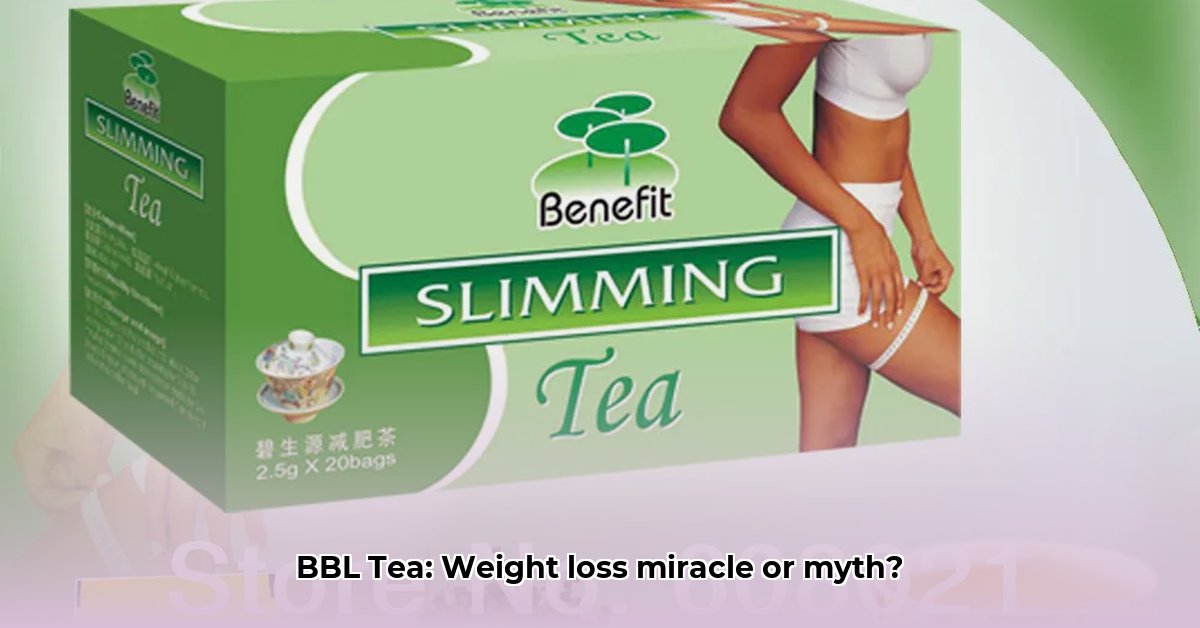
Let's examine the claims surrounding BBL tea and its purported weight-loss benefits. While advertisements often promise dramatic results, a critical review of the available evidence reveals a more nuanced picture. This article explores the potential mechanisms, scientific backing (or lack thereof), potential risks, and ultimately, offers consumers guidance on achieving healthy weight loss.
How Could BBL Tea Possibly Contribute to Weight Loss?
Many BBL tea blends contain ingredients like green tea and oolong tea. These teas contain compounds, such as catechins (including epigallocatechin gallate or EGCG in green tea), which might modestly increase metabolism. However, it's crucial to note that the synergistic effects of these components within the complex BBL tea blend remain largely unproven. There's insufficient scientific evidence to confirm that the combined ingredients produce a significant weight loss effect. More research is needed to clarify these complex interactions. While some preliminary studies suggest possibilities, substantial, well-designed clinical trials are lacking.
What Does the Scientific Evidence Show?
The scientific evidence supporting BBL tea's weight-loss claims is underwhelming. Many assertions are based on anecdotal evidence or marketing materials, not rigorous, large-scale studies. Although some smaller studies suggest a potential link between specific tea components and metabolic rate, these frequently suffer from limitations in sample size and control for confounding variables. To draw reliable conclusions, larger, well-designed studies with many participants and controlling for lifestyle factors (diet, exercise) are crucial. Until such studies exist, it's premature to claim BBL tea as an effective weight-loss aid. The current scientific landscape strongly suggests a need for further research.
Product Variation and Quality Concerns: A Lack of Standardization
A significant problem is the inconsistency among different BBL tea brands. Ingredients and their quantities vary wildly, making it hard to assess both safety and efficacy. This inconsistency hinders reliable scientific research due to the lack of a standardized product for testing. Consumers should exercise caution and prioritize reputable brands with transparent ingredient lists.
Potential Risks and Side Effects: A Cautious Approach
Several potential risks exist. Many BBL teas contain substantial added sugar, negating any potential metabolic benefit and contributing to weight gain. Some also contain diuretics, such as hibiscus, which can increase urination. While this might lead to short-term weight loss due to fluid loss, it's not actual fat loss and can result in dehydration if not accompanied by increased water intake. Moreover, potential interactions with medications are a concern. Always consult your doctor or pharmacist before using BBL tea, particularly if you have underlying health conditions or take other medications.
Consumer Considerations: Prioritizing a Balanced Lifestyle
Consumers should approach BBL tea with healthy skepticism. The cornerstone of sustainable weight management remains a balanced diet and regular exercise. Focus on reading food labels meticulously, paying particular attention to sugar content. If considering BBL tea, consult a healthcare professional or registered dietitian for personalized guidance. Remember, a holistic approach to health, encompassing lifestyle changes and professional advice, is vastly more effective than relying on a single product.
Conclusion: Evidence-Based Weight Loss Strategies
In summary, the evidence supporting BBL tea's effectiveness for weight loss is currently weak. The high sugar content in many formulations often outweighs any potential metabolic benefits. Consumers should prioritize a balanced diet, regular exercise, and professional advice for sustainable weight management, rather than relying on unproven supplements. Always consult your healthcare provider before starting any new supplement regimen.
Key Takeaways:
- BBL tea’s weight-loss claims lack robust scientific support.
- The high sugar content frequently outweighs potential metabolic benefits.
- A balanced lifestyle (diet and exercise) is superior to relying on any single supplement.
- Consult a healthcare professional before using BBL tea or similar products.